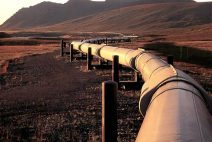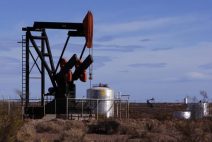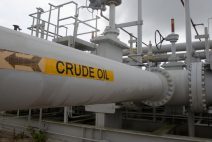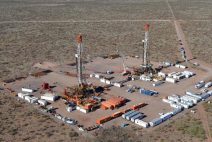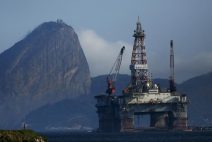The largest U.S. oil company, Exxon Mobil, stated that oil and natural gas "will remain essential" in 2050, despite climate goals and changes in energy demand, due to their increasing use in the industrial sector.
The Texas-based company released a report with its future projections, indicating that oil and natural gas, the main fossil fuels, will still account for more than half of energy consumption in 2050, with demand exceeding 100 million barrels per day (mbd).
"Demand for oil to make gasoline for passenger vehicles will decline by 2050. What many don’t understand is that making gasoline is only a relatively small use of oil," the company says, highlighting other economic needs for developing countries.
"The vast majority of the world's oil is used and will be used in industrial processes such as manufacturing and chemical production, along with high-load transportation" by sea, land, and air, the report states.
Exxon anticipates that crude oil demand will plateau starting in 2030 but will remain stable afterward. It cites increased demand for industrial uses (+30%) and commercial transportation (+10%), which would offset the decline in demand for common vehicles (-25%) and other uses (-35%).
Given this outlook, the company argues that "sustained investment" in fossil fuels is important. Otherwise, global oil supply could decrease so much by 2030 (15% annually) that it could cause a shock, driving prices up by as much as 400% and leading to increased unemployment.
Exxon believes, however, that carbon emissions will start to decline from 2030 onward and will have decreased by 25% by 2050, thanks to energy efficiency, renewable options, and technologies like hydrogen, biofuels, or carbon storage.
Nevertheless, these figures are far from those outlined in the Paris Agreement aimed at curbing the climate crisis. Exxon CEO Darren Woods calls for public policies, technological advancements, and a "transition from government subsidies to market-based mechanisms."
"It's important to note that the IEA (International Energy Agency) acknowledges that society is not on the path to net zero (emissions)," the company emphasizes.
Exxon’s projections of demand above 100 mbd by 2050 contrast sharply with those of another major oil company, BP, which estimates it at 75 mbd, or the IEA, which predicts slightly less than 56 mbd if countries meet their climate commitments.
